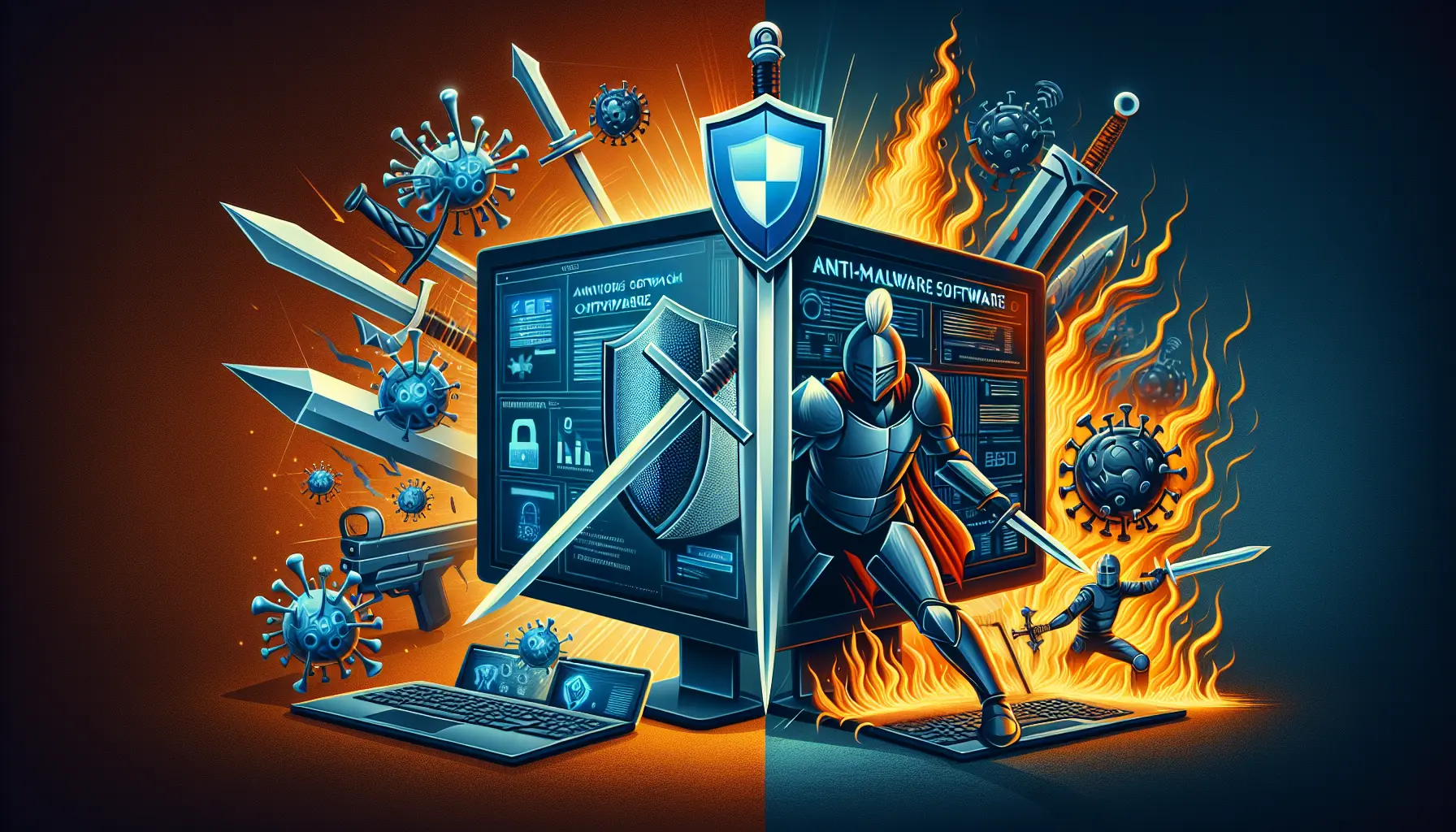
Estimated reading time: 8 minutes
Key Takeaways
- Understanding Tools: Knowing the difference between antivirus and anti-malware is crucial for effective digital security.
- Protection Strategies: Each tool has unique strengths; antivirus focuses on known threats, while anti-malware targets newer, sophisticated attacks.
- Layered Security: Using both antivirus and anti-malware can provide comprehensive protection against a wide range of threats.
- Regular Updates: Keeping your security software updated is essential for maintaining effective protection.
- Informed Choices: Assess your specific needs and usage patterns to choose the right security solution.
Table of Contents
- What's the Difference Between Antivirus and Anti-Malware?
- Understanding Antivirus Software
- Understanding Anti-Malware Software
- Key Differences in Protection Methods
- When to Use Each Solution
- Benefits of Using Both Solutions
- Making the Right Choice
- Best Practices for Maximum Protection
- Conclusion
- Frequently Asked Questions
What's the Difference Between Antivirus and Anti-Malware?
The distinction between antivirus and anti-malware software lies in their core focus and detection methods. While there's some overlap, understanding their unique strengths helps determine which solution best fits your needs.
Understanding Antivirus Software
Antivirus software serves as your first line of defense against traditional threats. It operates by:
- Scanning files using signature-based detection to identify known malicious code
- Monitoring system behavior to catch suspicious activities
- Providing real-time protection against incoming threats
Modern antivirus programs include features like:
- Scheduled system scans
- Email attachment screening
- Web browsing protection
- Basic firewall capabilities
Understanding Anti-Malware Software
Anti-malware tools focus on detecting and removing newer, more sophisticated threats. They excel at:
- Identifying emerging ransomware variants
- Detecting spyware and adware
- Removing persistent threats that antivirus might miss
- Providing specialized cleaning tools for infected systems
Key Differences in Protection Methods
The main distinctions between these security solutions lie in their approach:
Antivirus Protection Strategy
- Relies heavily on virus definitions
- Updates signature databases regularly
- Focuses on system-wide, always-on protection
- Better at preventing known threats
Anti-Malware Protection Strategy
- Uses behavior-based detection
- Emphasizes zero-day threat protection
- Specializes in removing stubborn infections
- Adapts quickly to new threat patterns
When to Use Each Solution
Your choice between antivirus and anti-malware should depend on your specific needs:
Choose Antivirus When:
- You need basic, reliable protection
- Your priority is preventing common viruses
- You want an all-in-one security solution
Choose Anti-Malware When:
- You require protection against newer threats
- You need specialized removal tools
- You want additional protection alongside antivirus
Benefits of Using Both Solutions
Many security experts recommend using both types of protection for maximum security. Here's why:
- Comprehensive threat coverage
- Multiple detection methods working together
- Better protection against both old and new threats
- Reduced risk of security gaps
Making the Right Choice
Consider these factors when selecting your security software:
- Your device usage patterns
- The types of files you commonly download
- Your budget for security software
- System resources available
Best Practices for Maximum Protection
Regardless of which solution you choose, follow these security practices:
- Keep all software updated regularly
- Run scheduled scans at least weekly
- Enable real-time protection features
- Back up important files regularly
- Use strong, unique passwords
Conclusion
The choice between antivirus and anti-malware isn't always either/or. Your best protection often comes from using both types of software, creating multiple layers of security. Consider your specific needs, evaluate the threats you're most likely to face, and choose a solution that provides comprehensive protection without overwhelming your system resources.
Remember: The best security solution is the one you'll actually use consistently. Choose tools that balance effective protection with user-friendly operation, and keep them updated to maintain strong defense against evolving digital threats.
Frequently Asked Questions
What is the main difference between antivirus and anti-malware?
Antivirus software primarily focuses on detecting and removing known viruses, while anti-malware tools are designed to combat a broader range of threats, including spyware, adware, and ransomware.
Can I use both antivirus and anti-malware software?
Yes, using both can provide enhanced protection, as they complement each other's strengths and cover a wider range of threats.
How often should I update my antivirus and anti-malware software?
It's essential to keep both types of software updated regularly, ideally set to automatic updates, to ensure you have the latest protection against emerging threats.
What should I do if my antivirus software detects a threat?
Follow the software's instructions to quarantine or remove the detected threat, and consider running a full system scan with your anti-malware software for additional security.
Is it necessary to have both antivirus and anti-malware?
While not strictly necessary, having both can significantly enhance your digital security by providing layered protection against a variety of threats.









